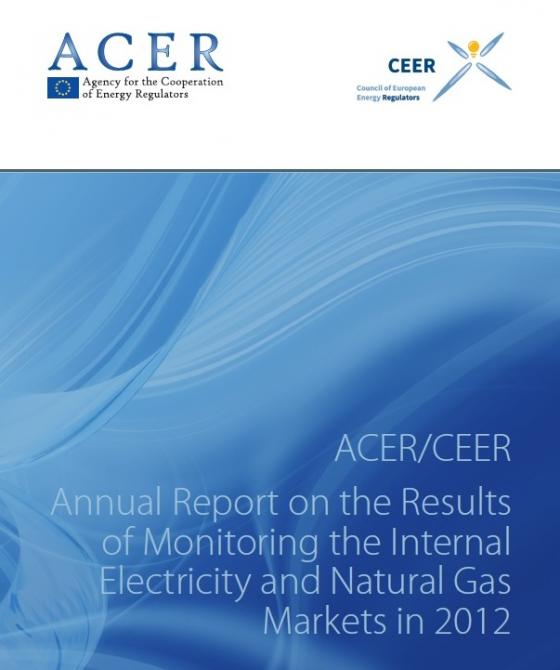Despite the economic downturn, gas and electricity prices rose significantly in 2012 according to the latest market monitoring report presented today in Brussels by the EU Agency for the Cooperation of Energy Regulators (ACER) and the Council of European Energy Regulators (CEER).
On average, electricity prices for households increased by 4.6% in 2012. Gas prices rose by 10%. Price regulation did not prevent an increase in the electricity and gas bills. Participants also debated about the findings on the progress achieved so far in the energy market integration as well as the barriers identified in the report. The event counted on the support of the Lithuanian EU Presidency and most representatives from key energy players were present.
According to Lord Mogg, Chair of ACER’s Board of Regulators and CEER President:
“The advantages brought about by the single market, such as lower wholesale electricity prices or a more efficient use of interconnectors identified in the study, still have fully to benefit final consumers in the retail market.”
“Delivering greater benefits to European consumers also requires completing the Internal Energy Market, while removing barriers to retail competition. Effort to achieve this goal by the end of 2014 should be stepped up through full implementation of the third package, adoption of the network codes and their early implementation. Any delay will cost European consumers billions of Euros annually”, said ACER Director, Alberto Pototschnig.
How can consumers get a better deal?
Switching supplier is a way in which consumers can obtain better deals. However, consumers in the EU seem not to take full advantage of this opportunity. In some jurisdictions, this is due to insufficient competition. In fact, network charges, taxes and other administratively set charges, including those to cover the costs of renewables support schemes – which may together account for up to half the energy bill – reduce the fraction of the overall energy price on which retailers can compete. This is aggravated by rising commodity prices in the gas sector. However, even where competing suppliers operate in the market – and a number of Member States have witnessed a growth in the presence of foreign energy suppliers, according to the report - and switching may deliver savings, most consumers show inertia, mainly due to a lack of awareness, consumer loyalty or risk aversion.
What is the status of energy market integration?
ACER and CEER have identified a general degree of progress in terms of price convergence on European wholesale gas and electricity markets and a more efficient use of the network – with the average utilisation rate of the high-voltage grid increasing from 60% at the end of 2010 to 76% in 2012. However, in some areas of Europe the challenge posed by the integration of renewables is leading to a decrease in the degree of price convergence when compared with the previous year.
The report also found that, although gas is now more often traded on spot markets, there are still quite a few oil-linked contracts which, together with a lack of clarity in cross-border tariffs, cause some economically inefficient gas flows from more expensive areas towards cheaper ones. Furthermore, the study shows that as demand decreases, contractual congestion declines and liquefied natural gas is increasingly being diverted away from Europe.
Find out more:



